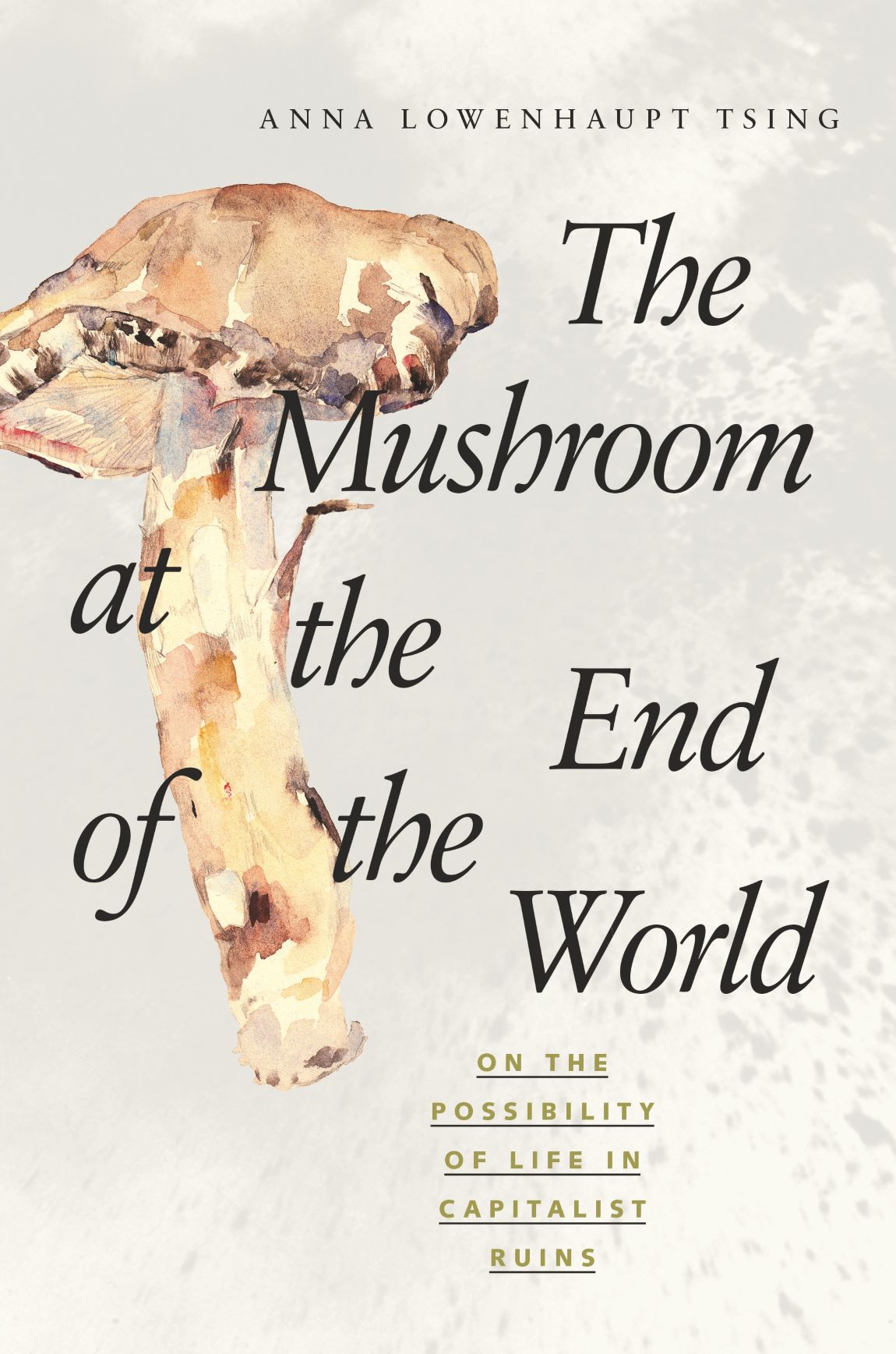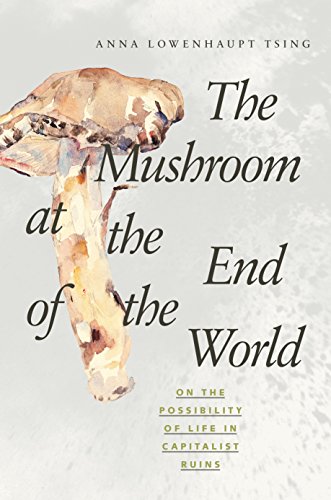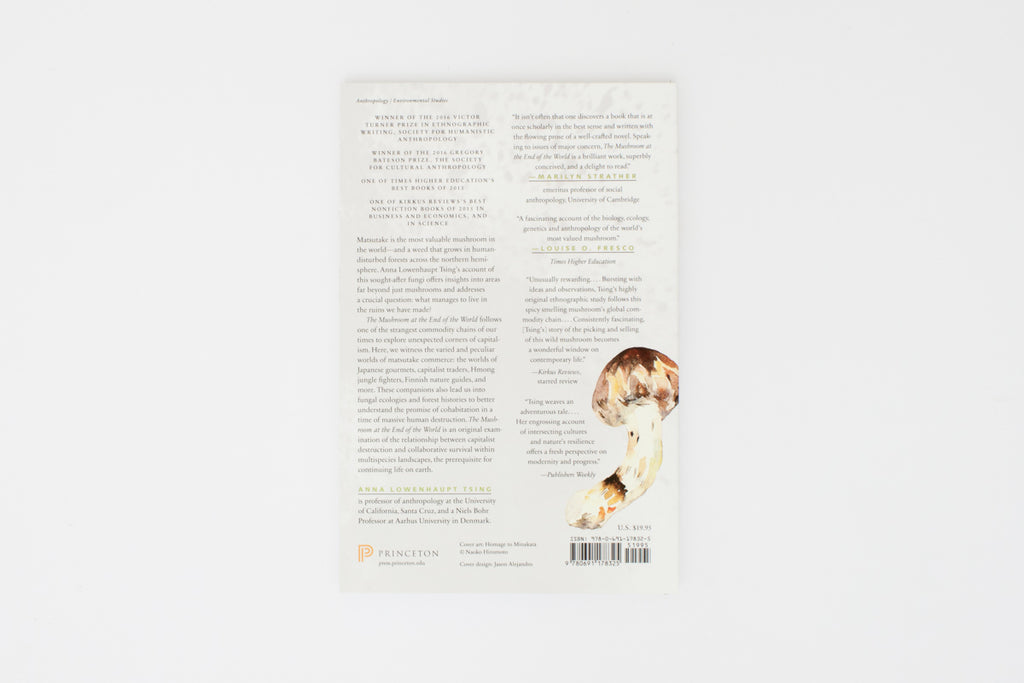
Pacific Northwest, assessing multispecies contributions to a multicultural economy of matsutake foraging, buying, and exporting. Of most interest, however, is the significant amount of time that she spends in Oregon, in the U.S.

Visiting what she calls the “patches” of mushroom production activity in various places, Tsing's account takes readers to the pine forests of northern Finland, peasant forests in China's Yunnan Province, inside the gift culture of Japan, and into pine forest restoration attempts there. The multispecies partnership is instrumental to the emergence of a global matsutake trade to supply the Japanese market. Matsutake and pines of various types live in a partnership that allows them to thrive together in disturbed, open areas and in poor soils, conditions that are available in various parts of the world and are often created by human-induced degradation.

It no longer grows there, however, due to the encroachments of twentieth-century development as well as the impacts of an invasive nematode that destroys red pines. This work on matsutake is a monumental addition to a productive interdisciplinary discourse that is heavily indebted to frameworks such as actor-network theory and feminist science studies, which assert the agency of nonhumans and demonstrate the illusion of a human–environment binary.Īt the center of her account is matsutake, an aromatic mushroom that is popular as a gift in Japan and is symbolic of Japanese identity.

Most significant, however, is that Tsing provides a vital accounting of the actions of nonhumans, such as fungi, pine trees, and nematodes, that fundamentally shape the trade and the people who engage with it. Her detailed account connects this economic activity to the human cultural dimensions of mushroom foraging, exporting, and consumption. Tsing's focus is on the globalized trade of matsutake mushrooms, which emerged during the 1980s to supply Japanese consumers with an important cultural product that no longer grows there. The book is a multispecies ethnography that aims to displace the human-centric perspective that ordinarily guides social science scholarship, which downplays the significance of nonhuman contributions to events and outcomes. $29.95 cloth (ISBN 978-5-1) $19.95 paper (ISBN 978-1).Īnthropologist Anna Lowenhaupt Tsing has written an outstanding book that speaks to core questions in contemporary geography.

Princeton, NJ: Princeton University Press, 2015.


 0 kommentar(er)
0 kommentar(er)
